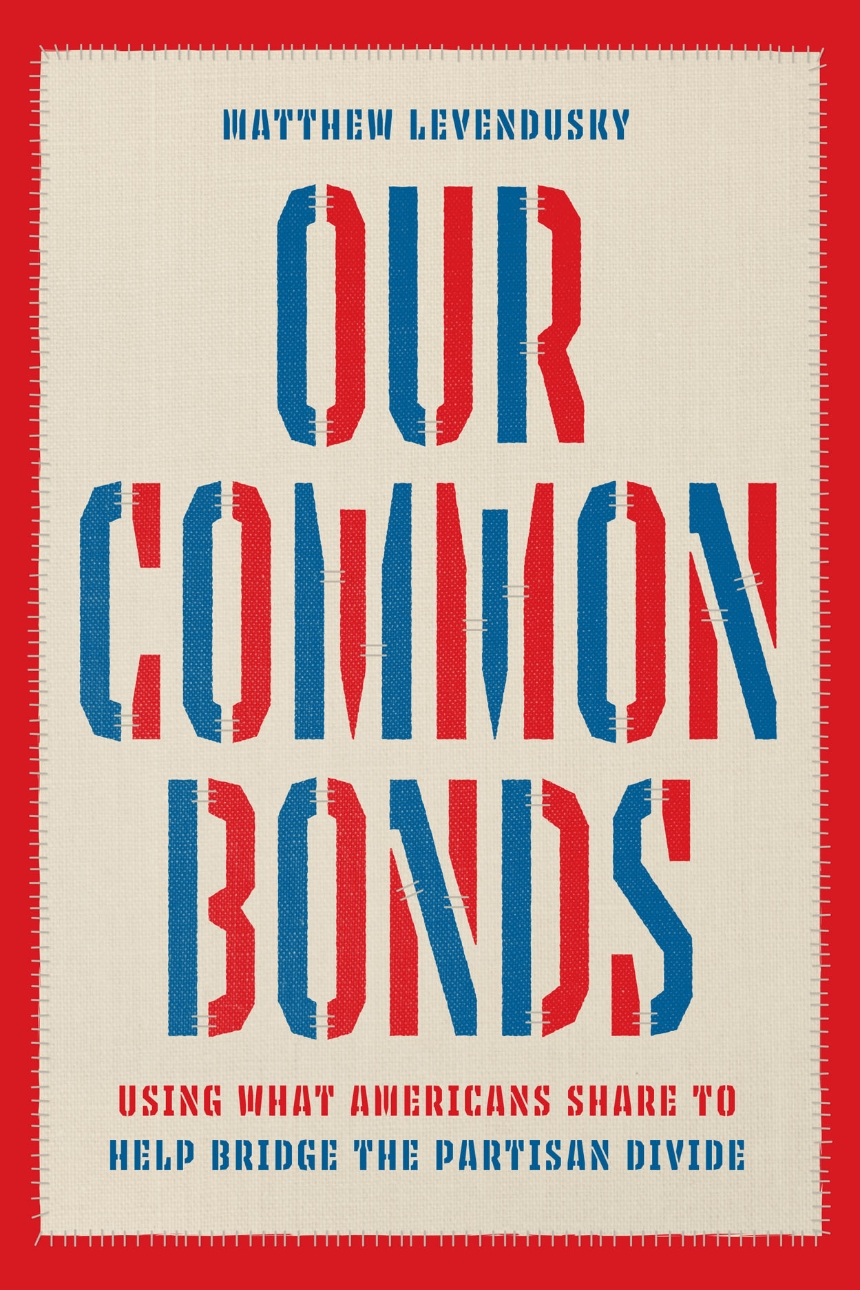Our Common Bonds
Using What Americans Share to Help Bridge the Partisan Divide
9780226824703
9780226824680
9780226824697
Our Common Bonds
Using What Americans Share to Help Bridge the Partisan Divide
A compelling exploration of concrete strategies to reduce partisan animosity by building on what Democrats and Republicans have in common.
One of the defining features of twenty-first-century American politics is the rise of affective polarization: Americans increasingly not only disagree with those from the other party but distrust and dislike them as well. This has toxic downstream consequences for both politics and social relationships. Is there any solution?
Our Common Bonds shows that—although there is no silver bullet that will eradicate partisan animosity—there are concrete interventions that can reduce it. Matthew Levendusky argues that partisan animosity stems in part from partisans’ misperceptions of one another. Democrats and Republicans think they have nothing in common, but this is not true. Drawing on survey and experimental evidence, the book shows that it is possible to help partisans reframe the lens through which they evaluate the out-party by priming commonalities—specifically, shared identities outside of politics, cross-party friendships, and common issue positions and values identified through civil cross-party dialogue. Doing so lessons partisan animosity, and it can even reduce ideological polarization. The book discusses what these findings mean for real-world efforts to bridge the partisan divide.
One of the defining features of twenty-first-century American politics is the rise of affective polarization: Americans increasingly not only disagree with those from the other party but distrust and dislike them as well. This has toxic downstream consequences for both politics and social relationships. Is there any solution?
Our Common Bonds shows that—although there is no silver bullet that will eradicate partisan animosity—there are concrete interventions that can reduce it. Matthew Levendusky argues that partisan animosity stems in part from partisans’ misperceptions of one another. Democrats and Republicans think they have nothing in common, but this is not true. Drawing on survey and experimental evidence, the book shows that it is possible to help partisans reframe the lens through which they evaluate the out-party by priming commonalities—specifically, shared identities outside of politics, cross-party friendships, and common issue positions and values identified through civil cross-party dialogue. Doing so lessons partisan animosity, and it can even reduce ideological polarization. The book discusses what these findings mean for real-world efforts to bridge the partisan divide.
240 pages | 27 line drawings, 18 tables | 6 x 9 | © 2023
Chicago Studies in American Politics
Political Science: American Government and Politics, Political Behavior and Public Opinion
Reviews
Table of Contents
Chapter 1: Is Overcoming Division a Fantasy?
Chapter 2: How Can We Mitigate Partisan Animosity?
Chapter 3: Can Our Shared Identities Bridge the Partisan Divide?
Chapter 4: Why Can’t We Be Friends: Can Cross-Party Friendships Mitigate Affective Polarization?
Chapter 5: Does Cross-Party Dialogue Reduce Partisan Animus?
Chapter 6: Are There Downstream Consequences to Reducing Affective Polarization?
Chapter 7: What Does This All Mean?
Acknowledgments
Appendix: Data Sources Used
Notes
Bibliography
Index
Chapter 2: How Can We Mitigate Partisan Animosity?
Chapter 3: Can Our Shared Identities Bridge the Partisan Divide?
Chapter 4: Why Can’t We Be Friends: Can Cross-Party Friendships Mitigate Affective Polarization?
Chapter 5: Does Cross-Party Dialogue Reduce Partisan Animus?
Chapter 6: Are There Downstream Consequences to Reducing Affective Polarization?
Chapter 7: What Does This All Mean?
Acknowledgments
Appendix: Data Sources Used
Notes
Bibliography
Index
